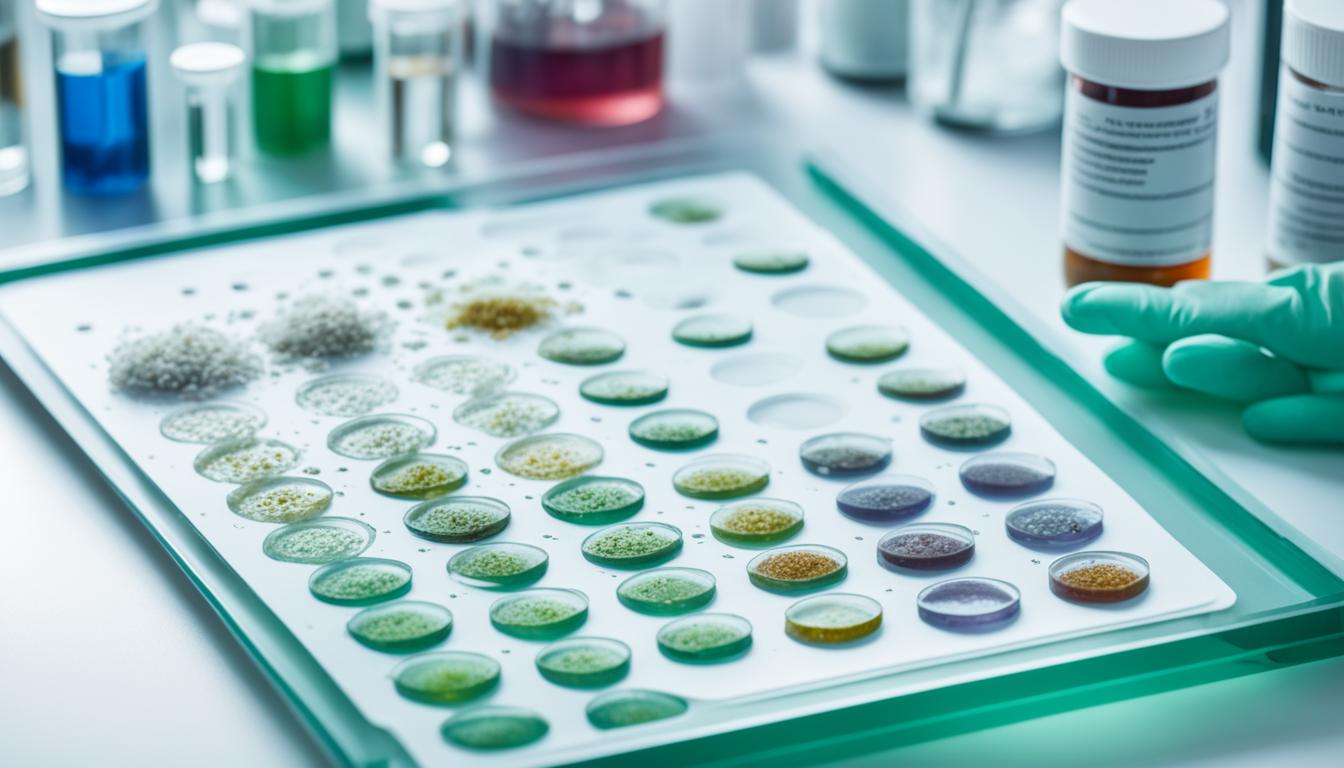
Everything You Should Know About Mold poisoning test
When it comes to protecting your health, knowledge is crucial. Mold poisoning is a serious health concern that can impact your well-being and the well-being of those around you. Understanding the importance of mold poisoning tests is the first step in safeguarding yourself and your loved ones.
Mold poisoning tests provide critical insights into your exposure to harmful molds and can help identify any potential health risks. By undergoing these tests, you can detect the presence of mold toxins in your environment and take necessary action to mitigate their effects.
In this section, we will dive into the important details surrounding mold poisoning tests. We will explore the various types of tests available, discuss the symptoms of mold poisoning, and provide crucial information on how to diagnose and treat mold-related health issues. By the end of this section, you will have a clear understanding of the significance of mold poisoning tests and how they can protect your health.
Key Takeaways:
- Mold poisoning tests are crucial in detecting the presence of mold toxins and assessing potential health risks.
- There are various types of mold poisoning tests available, including air sampling, surface sampling, and biomarker tests.
- Symptoms of mold poisoning may include allergic reactions, respiratory problems, and other health concerns.
- Mold poisoning can be diagnosed through physical examinations, medical history reviews, and laboratory tests.
- Treatment options for mold poisoning include medical interventions, lifestyle changes, and preventative measures to minimize exposure.
Understanding Mold Poisoning
In this section, we will explore the different types of mold poisoning and their associated symptoms. Mold exposure can have significant impacts on one’s health, leading to a range of symptoms and complications. By understanding the types and symptoms of mold poisoning, individuals can identify potential health issues and seek appropriate treatment.
Types of Mold Poisoning
There are various types of mold that can cause poisoning in individuals. Some common types include:
- Aspergillus: This type of mold is commonly found indoors and can cause respiratory issues and allergic reactions.
- Stachybotrys chartarum: Also known as black mold, this type of mold produces toxic substances that can lead to severe health problems.
- Penicillium: Penicillium mold can cause allergic reactions, respiratory problems, and even infections.
Symptoms of Mold Poisoning
Mold poisoning can manifest in various symptoms, depending on the individual’s sensitivity and the type of mold present. Common symptoms include:
- Allergic reactions: These can include sneezing, coughing, itchy eyes, and skin rashes.
- Respiratory problems: Mold exposure can trigger asthma attacks, worsen existing respiratory conditions, and cause difficulty breathing.
- Headaches and fatigue: Individuals exposed to mold may experience frequent headaches and feelings of fatigue.
- Neurological symptoms: Some individuals may exhibit neurological symptoms, such as memory problems, difficulty concentrating, and mood changes.
Diagnosis and Treatment Options for Mold Poisoning
Diagnosing mold poisoning involves a combination of medical evaluations and testing. Some diagnostic methods include:
- Physical examinations: Doctors will evaluate the patient’s symptoms and conduct a physical examination to assess their overall health.
- Medical history: Patients will be asked about their medical history, including any past exposure to mold or respiratory issues.
- Allergy testing: Skin tests or blood tests may be carried out to determine if the individual has developed an allergic reaction to mold.
The treatment options for mold poisoning focus on addressing the symptoms and removing the source of mold exposure. Recommended treatments may include:
- Medications: Depending on the symptoms, doctors may prescribe medications such as antihistamines, nasal sprays, or bronchodilators to alleviate allergic reactions and respiratory issues.
- Environmental control: Minimizing exposure to mold by fixing any water leaks, improving ventilation, and using air purifiers can help prevent further health problems.
- Professional mold remediation: In severe cases, professional mold remediation services may be necessary to remove the mold completely and ensure a safe environment.

Understanding the types, symptoms, diagnosis, and treatment options for mold poisoning is essential in protecting your health. If you suspect mold exposure in your environment, take prompt action to prevent further complications. By seeking professional assistance and implementing preventive measures, you can safeguard your well-being and create a healthier living or working space.
Conclusion
In conclusion, it is crucial to be aware of the potential health risks associated with mold poisoning. Mold exposure can lead to a range of symptoms, including allergic reactions, respiratory problems, and other related health issues. By understanding the types, symptoms, diagnosis, and treatment options, individuals can take proactive steps to protect their health and well-being.
If you suspect mold contamination in your living or working space, it is recommended to seek professional assistance. Fix Mold Miami, Florida’s Highest Rated In Mold Assessments, Prevention, and Remediation, is a trusted service provider that specializes in assessing and removing mold. Their team of experts can conduct a thorough mold assessment to identify any potential hazards and recommend appropriate remediation measures.
Contact Fix Mold Miami at 305-465-6653 to schedule a mold assessment and ensure a safe environment for you and your loved ones. Don’t wait until mold-related health issues become severe. Take action today to protect yourself and maintain a healthy living space.




